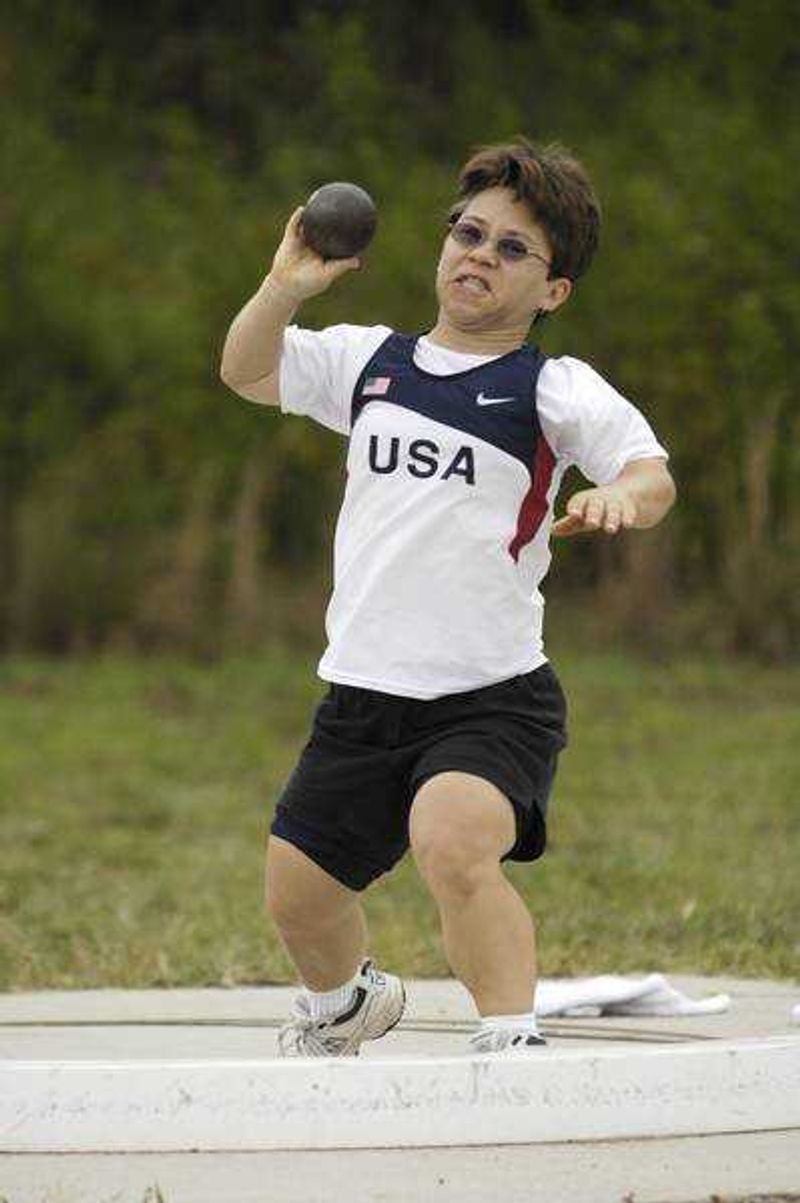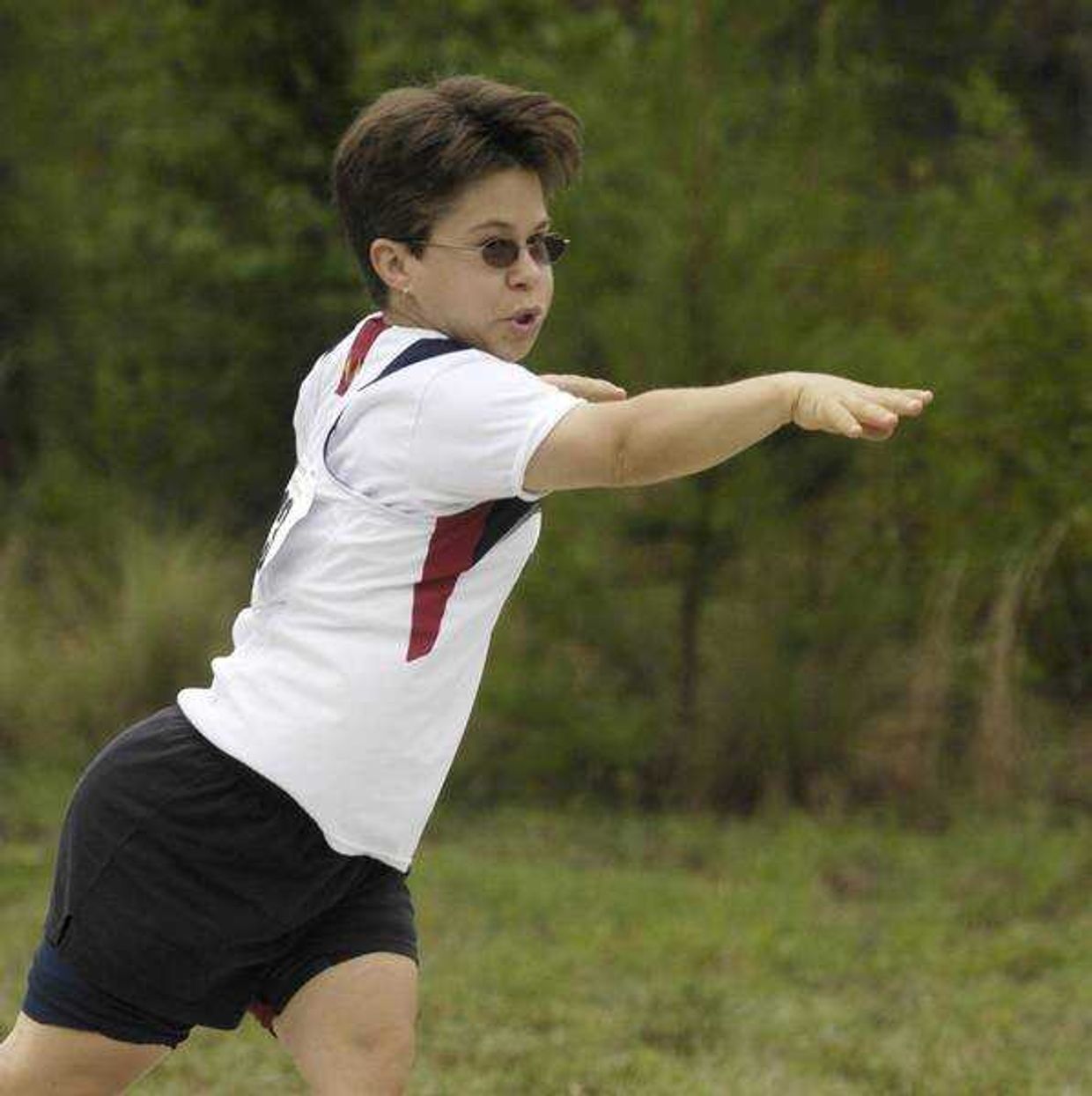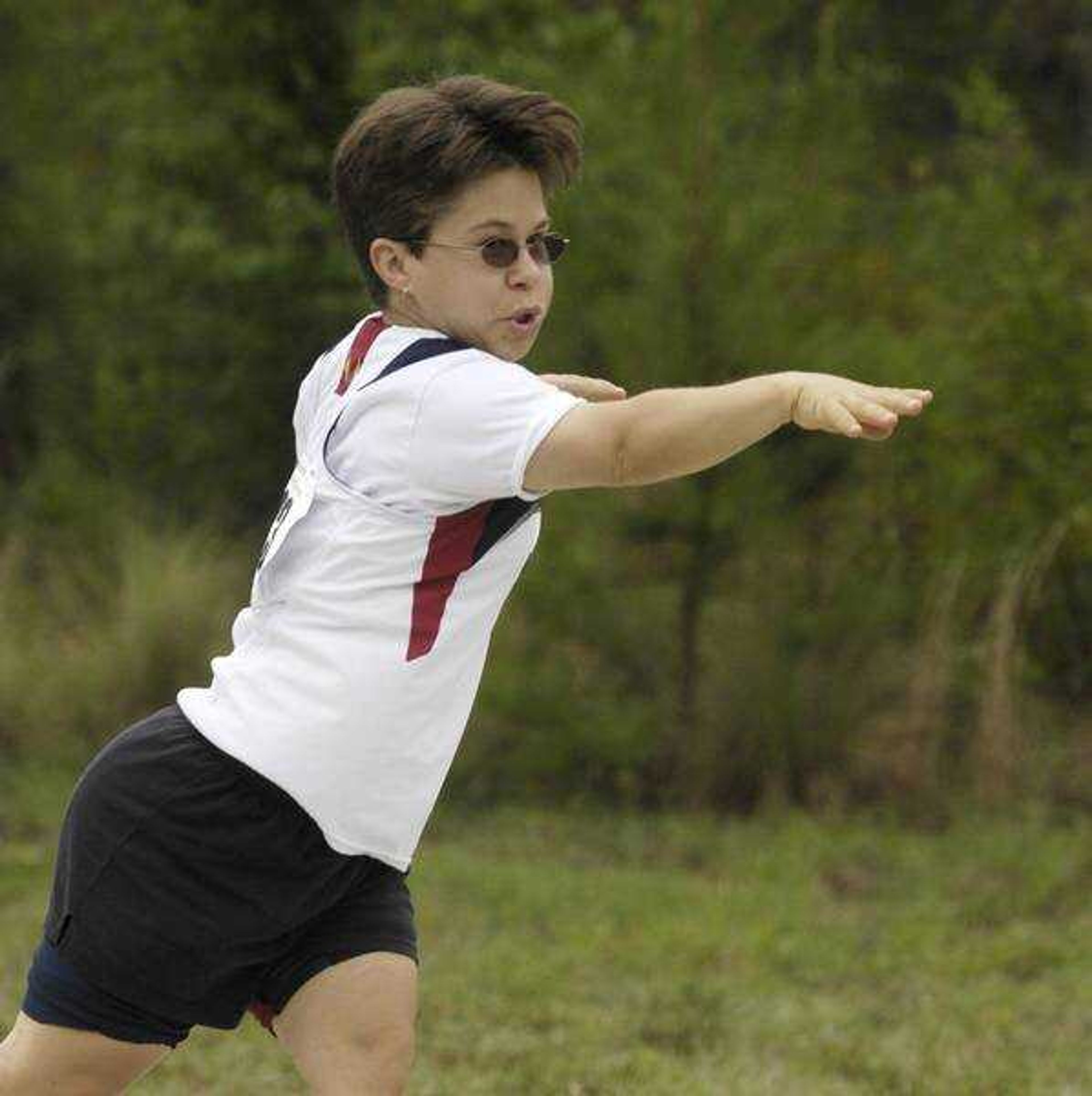Kennedy to compete in 2008 Paralympic Games
The 2008 Paralympic Games in Beijing may be the last hurrah for Jill Kennedy. But the 37-year-old Zalma native and Southeast Missouri State graduate is not planning to exit quietly from international competition. "For the discus, I would really love to get a medal," Kennedy said Tuesday in a phone interview from her home near Charlottesville, Va. ...
The 2008 Paralympic Games in Beijing may be the last hurrah for Jill Kennedy.
But the 37-year-old Zalma native and Southeast Missouri State graduate is not planning to exit quietly from international competition.
"For the discus, I would really love to get a medal," Kennedy said Tuesday in a phone interview from her home near Charlottesville, Va. "But most of all, I want to get a personal best. I think this is my last event, and that would be something nice to go out on, even if I didn't medal, that would be a real accomplishment to me.
"But I would like to get a medal."
Kennedy already has two track and field medals in her Paralympic Games career, which includes two previous appearances in the showcase event for elite disabled athletes. The Paralympics take place every four years following the Olympics at the same venues. Kennedy competes in the dwarf-only class, standing at 4 feet, 1 inch.
Since becoming a competitive athlete in 1995, when she learned about the Dwarf Athletic Association of America, she has competed as a powerlifter at the 2000 Paralympic Games in Sydney, Australia, and she won bronze medals in both the javelin and the discus at the 2004 event in Athens, Greece. She also was fifth in the shot put.
Most likely, the Paralympics set for Sept. 7 through 17, will be her last international competition.

"Unless the javelin is at the next Paralympics," she said. "I'm pretty sure this is the last one.
"I still love competing. I love to go and be with my teammates. I like being in these foreign countries, but I don't really like getting there. The travel is a little tough, and there are other things I would like to focus my energy and attention on.
"I will stay in shape and be physically active but I'm looking forward to being able to plan my physical activity and sports activity around my life instead of planning my life around sports."
One aspect of life Kennedy would like to focus on is her work. Kennedy is a freelance drafter who does a lot of architectural design. She has her own firm, Kennedy Drafting.

She also would like to be able to spend more time visiting her "dozens and dozens" of relatives in Bullinger and Stoddard counties.
Getting to Missouri has not been a possibility in recent months. As part of the preparation for the Paralympic Games, she has competed in the Paralympic World Cup in May in Manchester, England; the Endeavor Games in June in Edmond, Okla.; and the U.S. Paralympic Team Trials in Tempe, Ariz., that same month.
Kennedy got a good look at her competition at the World Cup event, when she was fifth in the shot put and fourth in the discus.
"The problem was, I did OK, but the Moroccans did great, so I didn't finish very well," Kennedy said. "That's just how it goes.
"My strongest competition are two Moroccan sisters. One of them usually wins the discus, and one of them usually wins the shot put, so they're very strong, and there's a strong up-and-coming Tunisian woman who may dominate this year."
The sisters from Morocco are Leila El Garaa, who was the shot put runner-up at the World Cup; and Najat El Garaa, who was the discus champion. The Tunisian woman, Raoua Tlili, won the shot put.
But Kennedy, who is the top returning discus thrower from the 2004 Paralympics going to Beijing, fired her career-best discus throw of just over 75 feet in June at the Endeavor Games. That was an improvement of nearly 12 feet over her mark in Athens.
"I'm still improving," she said.
Kennedy puts in the work six days a week -- three in the weight room and three at the track. Training solo, she follows a program scripted by the national team coach.
"We had to write up a goal to administration [in January], and one my goals was not to miss a single training session, and I have done that," Kennedy said. "There have been some days I really regretted putting that down in black and white. The week that it rained and I had to go out and throw the shot put. It was cold and raining and you'd throw the shot put and then you'd have to dig it out of the mud, and then it was cold and slimy. And you come back and throw it 12 more times. Yuk. But I did it, and I feel good about that."
Training smart
Kennedy said her ability to remain competitive at the top level at her age comes with "training smart and staying healthy" and the support of others.
"It's kind of cliche but very good support from family, friends, coaches and really good support from the Olympic committee," she said. "I really couldn't do it without the coaching support they provide."
Kennedy hopes her wisdom and experience that comes with her third Paralympic Games are able to get her on the medal stand at what will be an historic event in China.
"When you experience your first international event, there's a lot going on. There's a lot of things you don't expect to be so distracting, such as living with someone who has a completely different schedule than you, or bad food. Often at these meets, the food is really bad and it's more demoralizing than you would ever imagine to eat bad food for a week when you can't go anywhere else.
"Usually, the competition venues are good but the training venues are not," Kennedy continued, "and people will get upset about having a bad training facility.
"Once you're experienced and you've been to a couple events, you know to pack peanut butter and jelly in your suitcase and bring your own bottle of ketchup, and you know the training venues might not be very good or might be hard to get to, and you just take it in stride. You deal with it as best you can."
The first Olympic/Paralympic Games in China may bring more distractions than most international events. Kennedy and her teammates will go to Okinawa, Japan, and spend time at a U.S. Air Force base to get acclimated to the climate and the time change.
The biggest adjustment after that may come from the air quality.
"You really can't train for smog in a way that won't hurt you," Kennedy said. "There is really no way to prepare for that."
She said the athletes have been told to wear a face mask and stay indoors, especially "during the heat of the day, when the pollution is most damaging to your respiratory system."
Kennedy does expect the venues in China to be further along than they were in Greece.
"From every indication, the Chinese are going to be very prepared," Kennedy said. "In Greece, the paint was still wet when we got there, if things were even painted. In China, I think they're going to set a new mark for what standards the games need to meet."
Political issues
Kennedy is aware the event will be a large opportunity for China, and she acknowledges the politics that have become part of the event.
"I wonder sometimes why people are up in arms about it after the fact," she said. "The International Olympic Committee chose them, and it wasn't as if after they chose them the dirty laundry came out. Everybody knew they had a terrible human rights record.
"It's where the Olympics are, and I don't have any influence over that. Perhaps China was picked in the hopes that the attention, the outside influence, the media will bring attention to the human rights violations and abuses, and it will have a lasting effect. That is my hope."
Kennedy said her experiences in international competition have always been very cordial, even with athletes from countries that may have political differences with the United States or be in competition with her.
"The athletes are focused on what they are there to do and hopefully can find common ground," she said. "That has been my experience so far.
"I'm actually pretty friendly with the Moroccans -- the two sisters who always beat me. They speak a little bit of English and I can communicate with them a little bit. I am happy to see them succeed and very interested in their progress."
Kennedy will be interested to see if she can continue her improvement as well.
"It does get a little harder to keep up with training when your body gets a little older," she said, "but the experience of not getting distracted or demoralized by things when that go on at the competition pretty much even it out. I hope."
Connect with the Southeast Missourian Newsroom:
For corrections to this story or other insights for the editor, click here. To submit a letter to the editor, click here. To learn about the Southeast Missourian’s AI Policy, click here.








